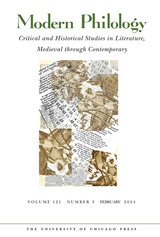

Sekine and Bonanno stress the incompatibility of the requirements of neoliberalism with the structural and cultural conditions of Japanese agri-food. Local farmers’ and fishermen’s emphasis on community collective management of natural resources, they argue, clashes with neoliberalism’s focus on individualism and competitiveness. The authors conclude by pointing out the resulting fundamental contradiction: The lack of recognition of this incompatibility allows the continuous implementation of market solutions to problems that originate in these very market mechanisms.

Proposals for reform have dotted the federal management landscape in the United States for more than 50 years. Yet these efforts by public management professionals have frequently failed to produce lasting results. In her new book, Federal Management Reform in a World of Contradictions, renowned public administration scholar Beryl A. Radin reveals what may lie behind the failure of so many efforts at government management reform.
To spur new thinking about this problem, Radin examines three basic sets of contradictions between the strategies of the reformers and the reality of the US federal system: contradictions in the shared powers structure, contradictions in values, and contradictions between politics and administration. She then explores six types of reform efforts and the core beliefs that guided them. The six reform areas are contracting out, personnel policy, agency reorganization, budgeting, federalism policies and procedures, and performance management. The book shows how too often these prescriptions for reform have tried to apply techniques from the private sector or a parliamentary system that do not transfer well to the structure of the US federal system and its democratic and political traditions.
Mindful of the ineffectiveness of a “one-size-fits–all” approach, Radin does not propose a single path for reform, but calls instead for a truly honest assessment of past efforts as today’s reformers design a new conceptual and strategic roadmap for the future.

Working within an innovative and panoramic historical and linguistic framework, Thurner examines the paradoxes of a resurgent Andean peasant republicanism during the mid-1800s and provides a critical revision of the meaning of republican Peru’s bloodiest peasant insurgency, the Atusparia Uprising of 1885. Displacing ahistorical and nationalist readings of Inka or Andean continuity, and undermining the long-held notion that the colonial legacy is the dominant historical force shaping contemporary Andean reality, Thurner suggests that in Peru, the postcolonial legacy of Latin America’s nation-founding nineteenth century transfigured, and ultimately reinvented, the colonial legacy in its own image.

O’Connor begins her investigations by examining the multilayered links between gender and Indian-state relations in nineteenth-century Ecuador. Disentangling issues of class and culture from issues of gender, she uncovers overlapping, conflicting, and ever-evolving patriarchies within both indigenous communities and the nation’s governing bodies. She finds that gender influenced sociopolitical behavior in a variety of ways, mediating interethnic struggles and negotiations that ultimately created the modern nation. Her deep research into primary sources—including congressional debates, ministerial reports, court cases, and hacienda records—allows a richer, more complex, and better informed national history to emerge.
Examining gender during Ecuadorian state building from “above” and “below,” O’Connor uncovers significant processes of interaction and agency during a critical period in the nation’s history. On a larger scale, her work suggests the importance of gender as a shaping force in the formation of nation-states in general while it questions recountings of historical events that fail to demonstrate an awareness of the centrality of gender in the unfolding of those events.



Müller-Lauter has remained at the forefront of German Nietzsche studies throughout the quarter century since this book first appeared. This long-awaited translation, containing two substantial subsequent essays, is a major addition to the English-language Nietzsche literature

Randall D. Williams’s essay on the relatively unknown history of American Indians in the region opens the collection, followed by Michael Allen’s history of boating and river professions on the Cumberland River. Al Cross and David Cross illuminate the Republican politics of the Kentucky section of the Upper Cumberland, while Mark Dudney provides a first-of-its-kind look at the early careers of distinguished Tennesseans Cordell Hull and John Gore. Equally fresh is Mary A. Evins’s examination of the career of Congressman Joe L. Evins, and coeditor Michael E. Birdwell and John B. Nisbet III contribute an in-depth piece on John Catron, the Upper Cumberland’s first Supreme Court justice. Troy D. Smith’s essay on Champ Ferguson sheds new light on the Confederate guerilla. Birdwell’s second contribution, an exploration of the history of moonshine, provides insight into a venerable Cumberland tradition. Pairing well with Walker’s essay, Janey Dudney and coeditor W. Calvin Dickinson discuss the superstitions faced by early Upper Cumberland medical professionals. Closing out the grouping of medical articles is Dickinson’s second chapter, which tells the story of Dr. May Cravath Wharton and her contribution to the region’s health care. Laura Clemons explores the relationship between composer Charles Faulkner Bryan and his gifted African American pupil J. Robert Bradley during the Jim Crow era. Birdwell’s third chapter and the collection’s final essay examines race relations in the Upper Cumberland.
Offering a broad look at one of the most understudied regions of the Volunteer State, this significant addition to Tennessee history will prove insightful for students and academics with interdisciplinary and cross-historical interests.

In this lucid critique, Norman Levitt examines the strained relations between science and contemporary society. For the most part, Levitt states, we idolize musicians and cheer on athletes, yet we view scientists with a mixture of awe and unease. Significantly, too, we are unsure how scientific discovery actually fits into the broader schemes of politics, and policy. Even beyond pragmatic questions, we remain anxious about the implications of science for our basic understanding of human values and purpose.
One result of this uncertainty about scientific work is an ill-informed crusade to “democratize” science. It has become fashionable lately, Levitt states, for non-scientists to attempt to intervene in science policy, which often results in methodologically unsound decisions. The embrace of "alternative medicine" is a particularly ominous example.
Levitt suggests that science, by virtue of its accuracy and reliability, deserves to be at the top of the hierarchy of knowledge, and that our social institutions ought to take this fact strongly into account. Levitt hopes that Americans will become aware of the limitations of unchecked populism and will be willing to yield a bit of “democratic” control over certain questions in order to minimize the danger that sound science will be ignored or overridden. However, this trust in scientific methodology must be part of a broader understanding. Science must not only act responsibly toward our democratic institutions; it must also concede that our society has the right to decide what kinds of research are most consistent with larger goals and therefore deserve the most support.


Watching Our Weights explores the competing and contradictory fat representations on television that are related to weight-loss and health, medicalization and disease, and body positivity and fat acceptance. While television—especially reality television—is typically understood to promote individual self-discipline and expert interventions as necessary for transforming fat bodies into thin bodies, fat representations and narratives on television also create space for alternative as well as resistant discourses of the body. Melissa Zimdars thus examines the resistance inherent within TV representations and narratives of fatness as a global health issue, the inherent and overt resistance found across stories of medicalized fatness, and programs that actively avoid dieting narratives in favor of less oppressive ways of thinking about the fat body. Watching Our Weights weaves together analyses of media industry lore and decisions, communication and health policies, medical research, activist projects, popular culture, and media texts to establish both how television shapes our knowledge of fatness and how fatness helps us better understand contemporary television.
READERS
Browse our collection.
PUBLISHERS
See BiblioVault's publisher services.
STUDENT SERVICES
Files for college accessibility offices.
UChicago Accessibility Resources
home | accessibility | search | about | contact us
BiblioVault ® 2001 - 2024
The University of Chicago Press









